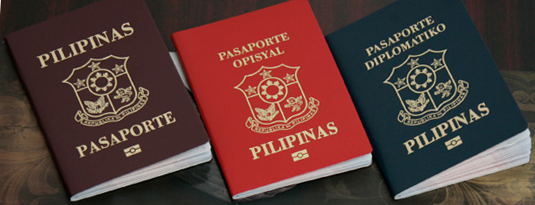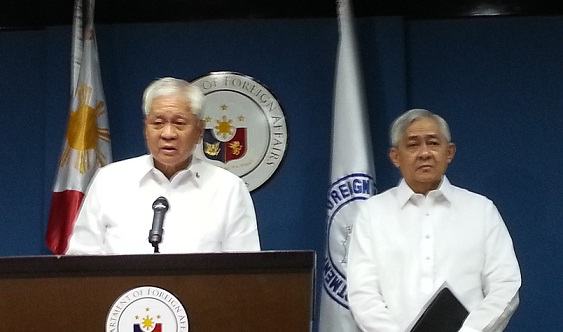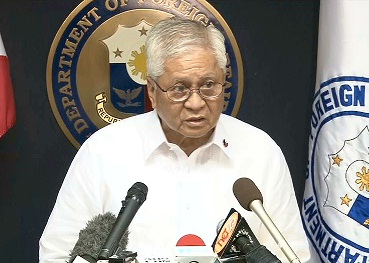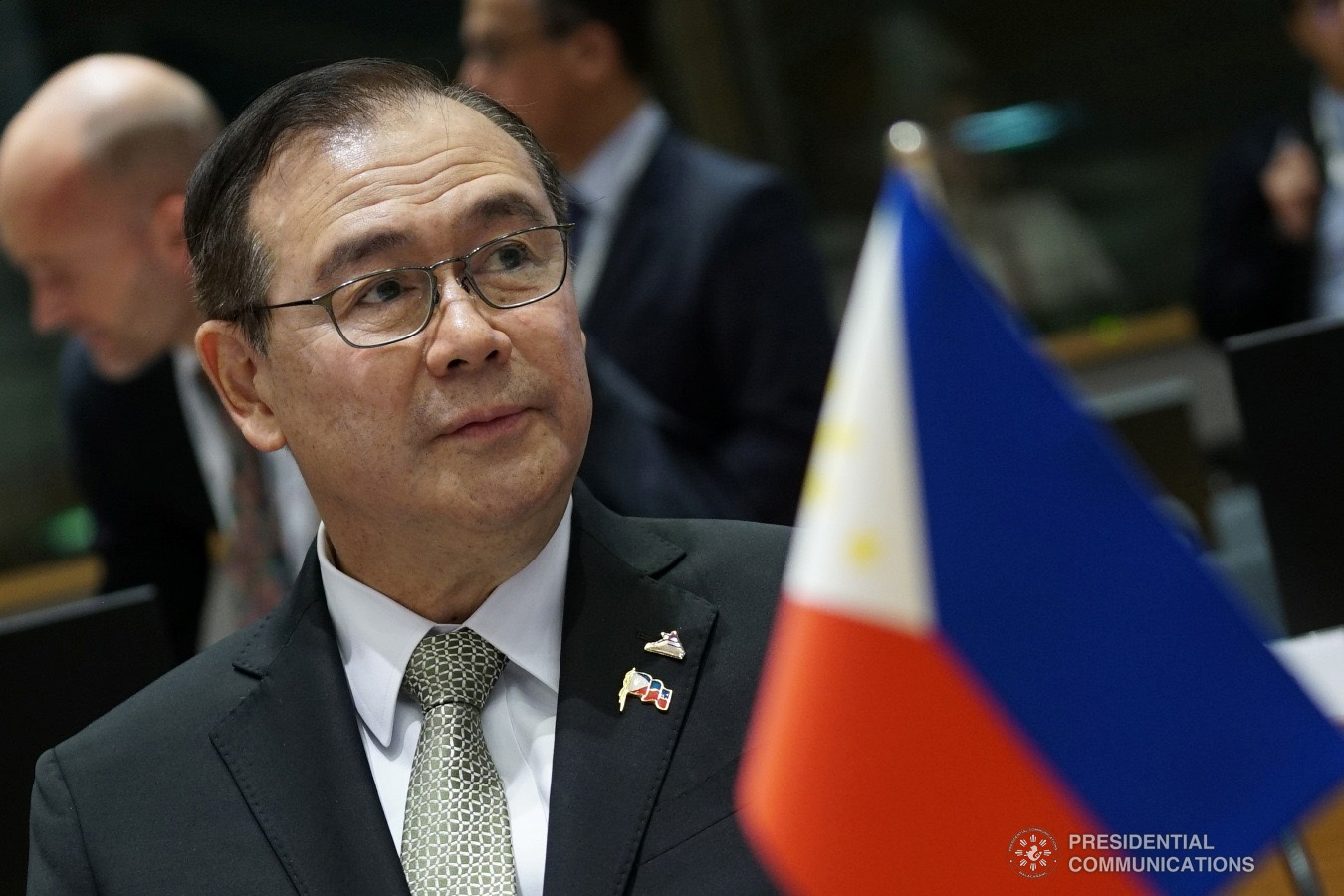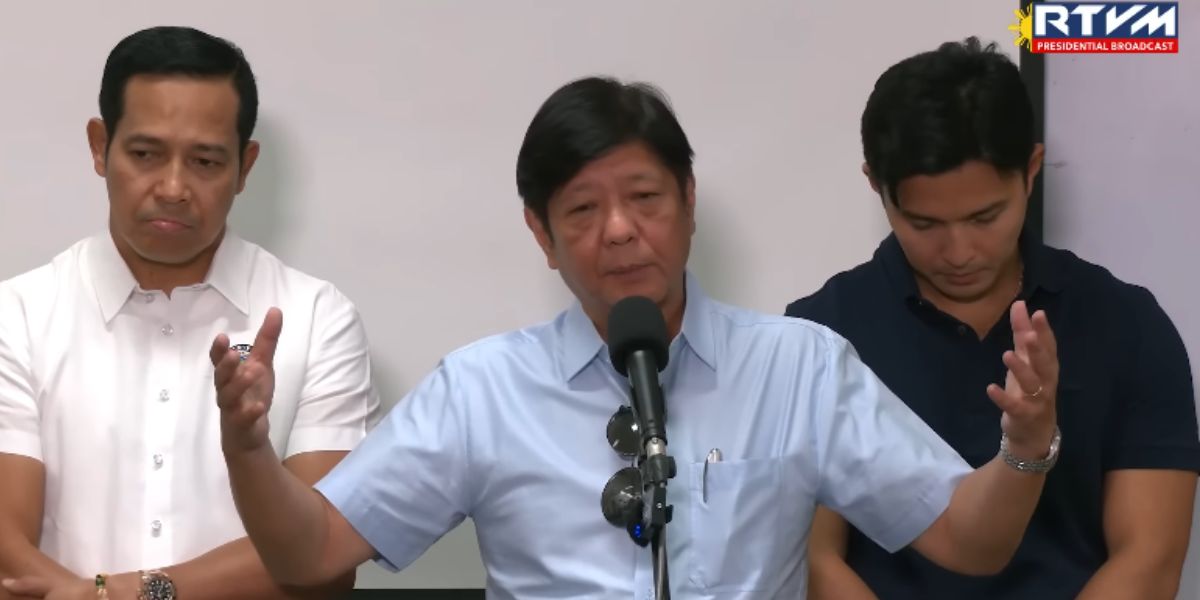The Department of Foreign Affairs (DFA) has announced that it will cancel all “courtesy diplomatic passports.”
This, after Hong Kong denied entry to and deported ex-DFA chief Albert del Rosario without any explanation.
In its statement of June 22, the DFA cited a 1993 department order granting its past secretaries and ambassadors diplomatic passports “as a matter of courtesy…to accord them the usual port courtesies at immigration points abroad.”
The DFA said the Office of Consular Affairs (OCA) “will be issuing an order shortly, cancelling all courtesy diplomatic passports.”
Del Rosario said doing so would be “unlawful” because a department order “cannot supersede” Republic Act 8239 or the Philippine Passport Act of 1996, a law passed by Congress.
But what are diplomatic passports and who are entitled to them?
Here are three facts you need to know.
What are diplomatic passports?
Diplomatic passports are issued to persons “imbued with diplomatic status or are on [a] diplomatic mission,” according to the Philippine Passport Act.
It is one of three types issued by the foreign affairs secretary or his authorized representative; the other two being official and regular passports.
Official passports are given to all government officials and employees who:
- are on official trip abroad but are not on a diplomatic mission;
- are delegates to international or regional conferences; or
- have not been accorded diplomatic status.
A regular passport, on the other hand, is issued to all Filipino citizens who are “not eligible or entitled to diplomatic or official passports.” This includes public officials or employees going abroad for “pleasure or other personal reasons.”
Those with either diplomatic or official passports are subject to lesser visa restrictions compared to regular passport holders. But they must submit their passports to the DFA for revalidation before every departure.
The Philippine Passport Act does not have a provision on the issuance of diplomatic passports out of courtesy.
A South China Morning Post report quoting former ambassador Victoria Bataclan said there are about 100 to 200 holders of courtesy diplomatic passports. Not all are former diplomats; some are congressmen and leaders of a religious sect, according to Lauro Baja, the country’s former ambassador to the United Nations, the same report said.
Who are entitled to diplomatic passports?
Diplomatic passports are typically granted to high-ranking public officials “whose post of assignment require[s] use of such passport to carry-out [their] duties,” according to DFA OCA.
These include:
- Current and former presidents and vice presidents;
- Senate president and speaker of the House of Representatives;
- Supreme Court chief justice;
- Cabinet secretaries and foreign affairs undersecretaries and assistant secretaries;
- Ambassadors, foreign service officers of all ranks in the career diplomatic service, attaches;
- Members of Congress when on official mission abroad or as delegates to international conferences; and
- Governor of the Bangko Sentral ng Pilipinas and delegates to international or regional conferences when on official mission or accorded full powers by the president.
The spouses and unmarried minor children of said officials may be issued the same when accompanying or following to join them in an official mission abroad.
The president and foreign affairs secretary may also grant diplomatic passports to other officials and persons not stated in the law but who are on official mission out of the country.
While the Philippine Passport Act does not explicitly include former foreign affairs secretaries or envoys in its list, it defines “Ambassadors” as:
“…those who have been appointed as chiefs of mission and have served as Ambassador Extraordinary and Plenipotentiary.”
Chief of mission pertains to the head of an embassy or other diplomatic missions of the Philippines, or any person appointed by the president, according to Section 5 of the Philippine Foreign Service Act.
Collins Dictionary defines ambassador extraordinary as a “diplomatic minister of the highest rank sent on a special mission,” and plenipotentiary as a “person who has full power to make decisions or take action on behalf of their government, especially in a foreign country.”
All ambassadors extraordinary and plenipotentiary assigned to head embassies and permanent missions are nominated by the president and approved by the Commission on Appointments, according to Section 16 of the Philippine Foreign Service Act.
Prior to his stint as the country’s top diplomat, Del Rosario served as chief of mission and ambassador extraordinary and plenipotentiary to the United States under President Gloria Macapagal-Arroyo.
Can diplomatic passports be cancelled?
Yes.
The Philippine Passport Act does not differentiate among the three passport types in terms of grounds for cancellation. It enumerated only three:
- When the holder is a fugitive from justice;
- When the holder has been convicted of a criminal offense, in which case the passport may be restored after the person’s sentence has been served; and
- When a passport was acquired fraudulently or tampered with.
The DFA did not disclose in its June 22 statement the basis for revoking the “courtesy” diplomatic passports of all ex-diplomats.
But in a June 24 tweet, Locsin said it was because he “refuses” to “single out” Del Rosario and wants to “prevent rejections of our diplomatic passports with impunity.”
Sources
Department of Foreign Affairs website, Statement: On the Issuance of Diplomatic Passport, June 22, 2019
South China Morning Post, Former Philippine diplomat Albert Del Rosario, who criticised China, back in Manila after Hong Kong deportation, June 21, 2019
ABS-CBN News, Ex-DFA chief and China nemesis Del Rosario held at HK airport, June 21, 2019
CNN Philippines, ‘The Source’ speaks to Albert del Rosario, June 23, 2019
ABS-CBN News, Del Rosario: ‘Unlawful’ to cancel diplomatic passports of ex-diplomats | ANC, June 23, 2019
Teodoro Locsin Jr. official Twitter account, June 23, 2019:
- Here’s a clarification
- 2. President and SFA may issue diplomatic passports
- 3. …inconsistent modified
- 4. Therefore until such time
Official Gazette, Republic Act 8239
Department of Foreign Affairs website, DIPLOMATIC AND OFFICIAL PASSPORT SECTION FREQUENTLY ASKED QUESTIONS
Official Gazette, Foreign Service Act of 1991
Official Gazette, Visa policies towards Filipino nationals
South China Morning Post, Ex-officials criticise Duterte administration’s soft approach towards China, as Philippine foreign ministry cancels diplomatic passports, June 24, 2019
GMA News Online, Diplomatic passports issued to private individuals, DFA sources say, June 24, 2019
Collins Dictionary, Ambassador Extraordinary
Collins Dictionary, Plenipotentiary
Embassy of the Philippines – Islamabad, Pakistan , Albert F. Del Rosario
Teodoro Locsin Jr. official Twitter account, June 24, 2019
- It was properly issued to him
- Robredo warns against cancellation of diplomatic passports of former gov’t officials
(Guided by the code of principles of the International Fact-Checking Network at Poynter, VERA Files tracks the false claims, flip-flops, misleading statements of public officials and figures, and debunks them with factual evidence. Find out more about this initiative and our methodology.)
